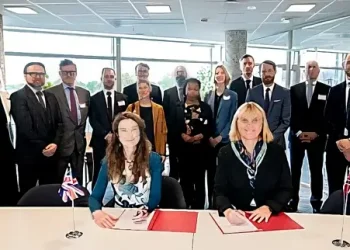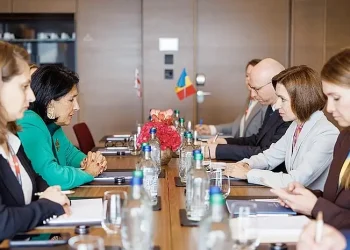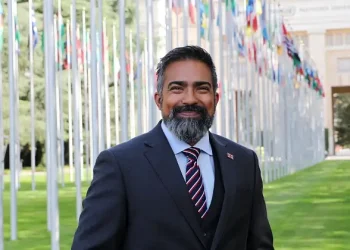The UK-Germany Treaty on Friendship and Bilateral Cooperation, signed in July 2025, establishes a comprehensive framework for collaboration across security, defense, climate action, migration, and economic development.
This treaty marks the first of its kind post-Brexit, aiming to address global challenges through 17 priority projects and enhanced defense interoperability.
Details of the UK-Germany Friendship and Cooperation Treaty
The UK-Germany Treaty on Friendship and Bilateral Cooperation, formalized in July 2025, represents a significant milestone in bilateral relations, particularly following Brexit. This comprehensive agreement covers a wide range of sectors including security, defense, climate change, and economic cooperation.
Both nations have committed to a series of 17 priority projects that aim to tackle global challenges such as climate action and migration, while also strengthening economic ties and defense cooperation.
Strategic Defense and Economic Initiatives Under the Treaty
Key aspects of the treaty include the development of joint defense capabilities and the alignment of defense export controls with the EU framework. This includes initiatives to enhance interoperability and joint capabilities for high-intensity defense scenarios.
Economically, the treaty is bolstered by significant investments from private companies, including a £50 million investment from Cognigy and the creation of 200 new jobs by Siemens Energy, highlighting the treaty’s potential to boost local economies.
How Climate Change is Shaping Migration Policies Today
Under the treaty, both the UK and Germany have pledged to work together to limit global temperature rise to 1.5°C, aligning with broader international climate goals. This includes cooperation on renewable energy projects and commitments to reduce greenhouse gas emissions.
Additionally, the treaty addresses migration issues by strengthening border security and combating illegal migration networks, with a focus on enhancing legal frameworks and operational cooperation to prevent human smuggling.
Lessons from the Past: Navigating Climate and Migration Challenges
The treaty follows the 2024 Trinity House Defense Agreement, expanding on the strategic military cooperation between the UK and Germany. This new treaty aims to further solidify the defense relationship in the context of broader European security frameworks.
Looking forward, the treaty sets a precedent for future bilateral agreements and is seen as a model for combining NATO and EU strategic priorities with bilateral interests.
Essential Statistics and Insights from the Recent Treaty
| Category | Detail |
|---|---|
| Investment by Cognigy | £50 million |
| New Jobs by Siemens Energy | 200 positions |
| Priority Projects | 17 targeted initiatives |
| Climate Goal | Limit global temperature rise to 1.5°C |
Cultural and Educational Exchanges Enhanced
The treaty also emphasizes the importance of cultural and educational exchanges between the UK and Germany. Plans to expand youth exchange programs and collaborations in digital technology education are expected to foster deeper cultural understanding and innovation.
These initiatives are part of a broader effort to strengthen societal ties and mutual understanding between the two nations, enhancing the overall effectiveness of the treaty’s broader goals.
Reactions and Perspectives from Industry Leaders
Industry leaders have shown strong support for the treaty, with significant investments planned in key sectors. HV Capital, for example, has announced plans for a £150 million sustainability fund, which underscores the economic optimism surrounding the treaty.
However, some critics express concerns about the balance between maintaining sovereignty and the deepening integration with EU frameworks, highlighting ongoing debates within both countries.
Additional Reading
Sources: UK Government Press Release, German Government Document, Prime Minister’s Office, 10 Downing Street, and Auswärtiges Amt.
Prepared by Ivan Alexander Golden, Founder of THX News™, an independent news organization delivering timely insights from global official sources. Combines AI-analyzed research with human-edited accuracy and context.








